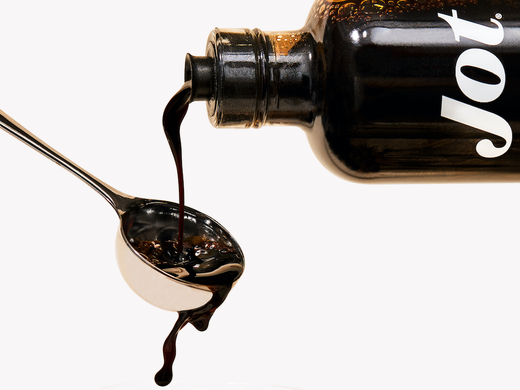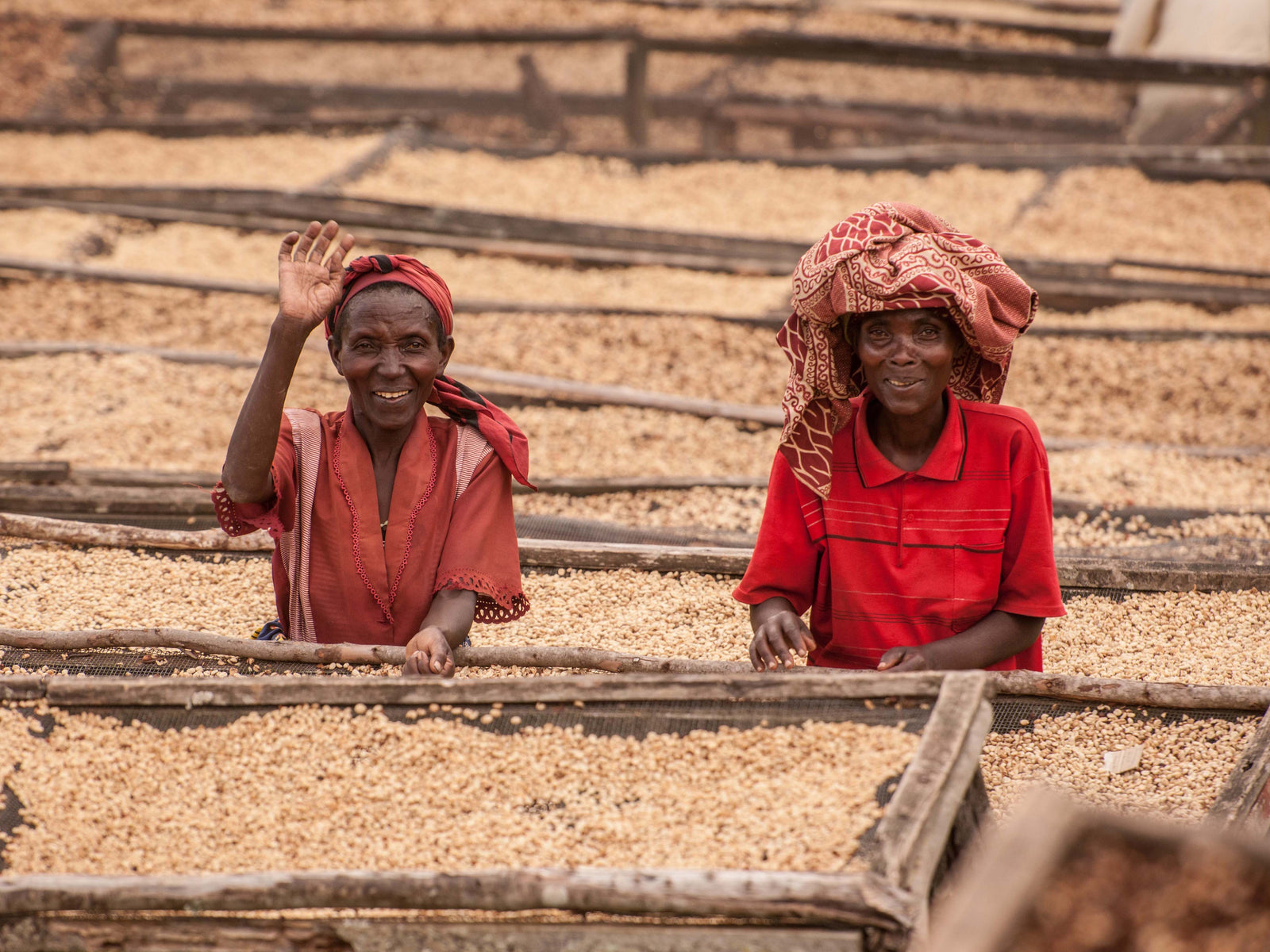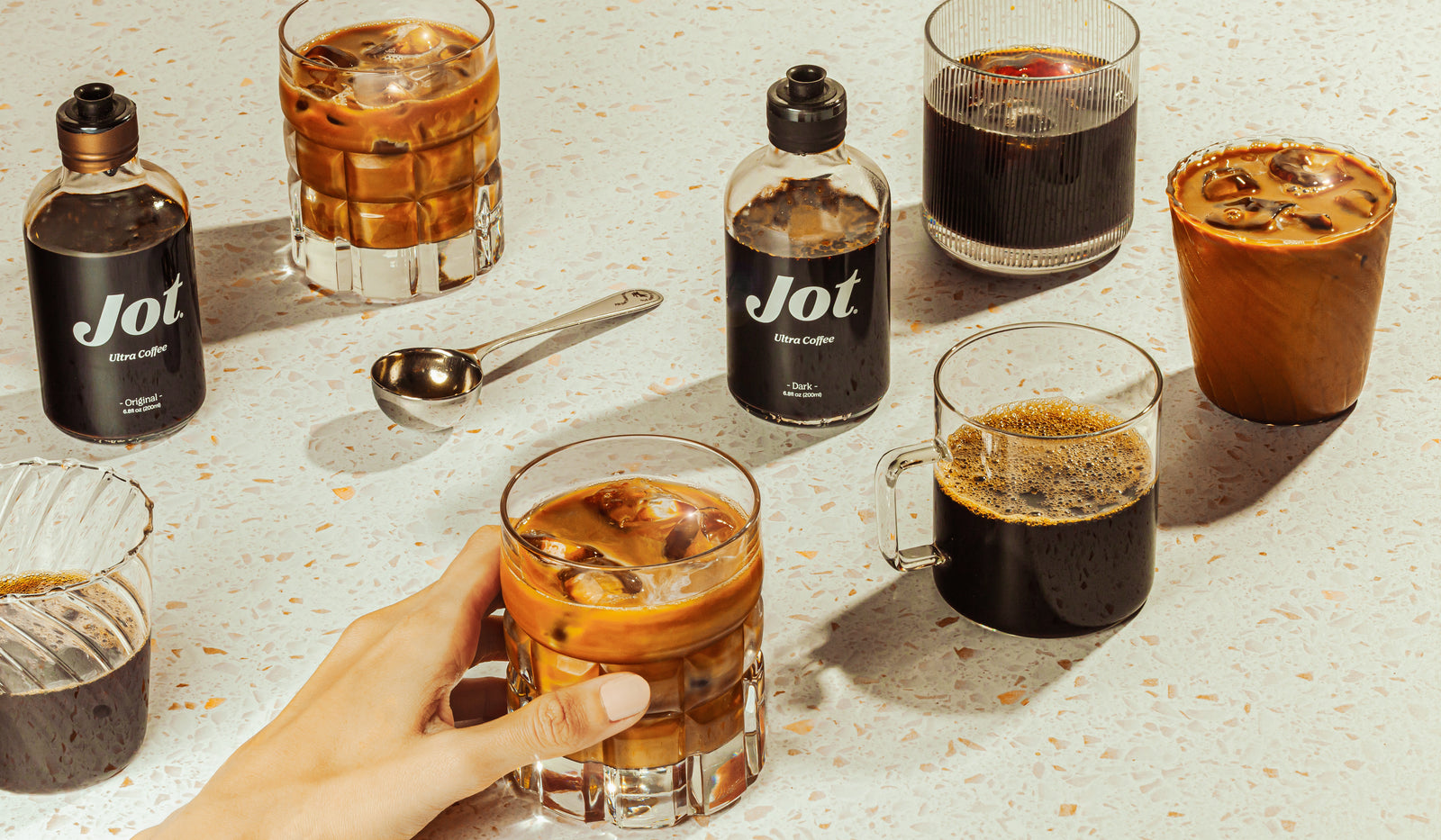People ask us all the time, “Is Ultra Coffee different from espresso?”
Short answer: Yes. Very much so.
Long answer: When we discovered the unique brew method that ultimately led to the creation of Jot Ultra Coffee, there were really just four traditional types of coffee brewing methods:
- Drip brewing, which involves letting gravity pull hot water through ground coffee and drip out through a filter, such as with classic home coffee makers as well as pour-over and Chemex styles
- Steeping, in which ground coffee sits in water and then either gets strained out or simply allowed to settle, such as with French press, Aeropress, cold brew, cowboy coffee, and Turkish coffee
- Percolating, where boiling water rises up through a tube and passes through a chamber holding the ground coffee, as with a stovetop percolator or moka pot.
- Espresso, in which very hot, pressurized water passes through tightly packed ground coffee.
But Ultra Coffee is none of these. It’s made using a unique progressive enrichment process that lets us brew at a 20x concentration, unlike any other form of coffee.
If immersing yourself in coffee science isn’t your thing, concentrate might be for you.
How are espresso and coffee concentrate different?
While espresso is certainly a type of concentrated coffee in that it’s more concentrated than American drip-brewed coffee, it’s still not at all the same thing as a “liquid coffee concentrate.”
Liquid coffee concentrate is something new. In the way that it’s used, it’s actually more akin to a gourmet instant coffee than espresso because the flavor is so intense on its own that it needs to be diluted in water or milk.
Once diluted, a drink made with Ultra Coffee concentrate has roughly the same amount of caffeine as an espresso-based drink, but at full potency, in its undiluted state, it’s about 20x as strong as brewed coffee, or 5x as strong as espresso.
Caffeine content for Jot Ultra Coffee vs. other forms of coffee:
- Jot Ultra Coffee: 150 mg of caffeine per tablespoon (undiluted)
- Hot brewed coffee (drip, Chemex or pour-over, French press, Aeropress, etc.): 7–8 mg per tablespoon
- Cold brew coffee: 8–11 mg per tablespoon
- Espresso: 30 mg per tablespoon
How are they similar?
Like espresso, liquid coffee concentrate is extremely versatile, much more so than brewed coffee, because it can be used to make things like lattes and cappuccinos, which brewed coffee cannot do.
It is easily diluted in water, milk, cream, oat milk, half-and-half, etc., transforming into any style of drink in seconds.
Which is better?
“Better” is always relative. We get it. Some people love to immerse themselves in the process of at home espresso.
Picking the beans, getting the grind just right, the science, the delicate art of pulling a shot from a fancy machine...that stuff is all awesome. If that’s what you’re into, go for it.
But if that’s not your thing, coffee concentrate could be for you.
The great thing about Ultra Coffee is that the unique brew method highlights all of the flavor and nuance of great organic coffee. It doesn’t have the burned flavor of old-school, freeze-dried instant coffee, but the rich chocolatey aroma and body of great barista coffee.
So, while Jot allows you to make drip-style and espresso-style drinks, it requires no mess, extra machinery, equipment, or expertise, and you never have to worry about watered down iced coffee. Just one tablespoon in the liquid of your choice and your drink order is done.
Don't feel like taking our word for it? Read more about how Jot Coffee Concentrate stacks up in this review.









